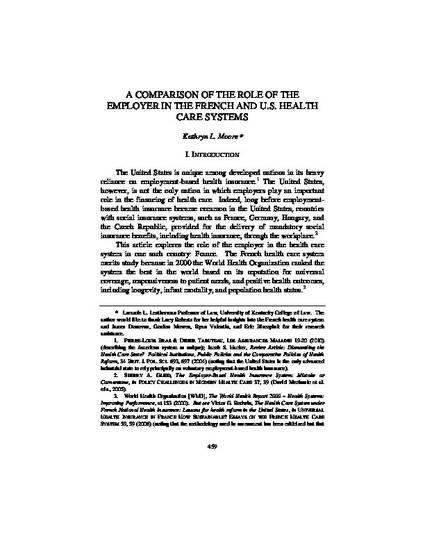
The United States is unique among developed nations in its heavy reliance on employment-based health insurance. The United States, however, is not the only nation in which employers play an important role in the financing of health care. Indeed, long before employment-based health insurance became common in the United States, countries with social insurance systems, such as France, Germany, Hungary, and the Czech Republic, provided for the delivery of mandatory social insurance benefits, including health insurance, through the workplace.
This article explores the role of the employer in the health care system in one such country: France. The French health care system merits study because in 2000 the World Health Organization ranked the system the best in the world based on its reputation for universal coverage, responsiveness to patient needs, and positive health outcomes, including longevity, infant mortality, and population health status.
This article begins by providing an overview of the French health care system. It then discusses the role of the employer in the French health care system. Finally, it compares the role of the employer in the French system with the role of the employer in the U.S. health care system.

Hofstra Labor & Employment Law Journal, Vol. 30, No. 2 (2013), pp. 459-488